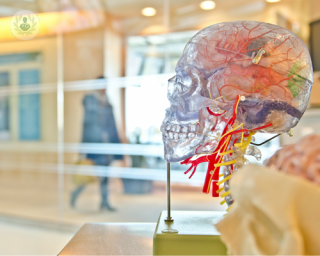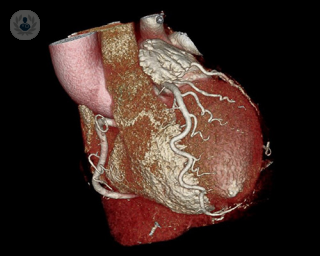El colesterol alto, o dislipidemia, es la alta presencia de grasas en la sangre. Esto puede ser causado por el consumo excesivo de grasa o tal vez un cambio en el metabolismo. Un análisis de sangre debe llevarse a cabo con el fin de hacer un diagnóstico de colesterol alto. El tratamiento incluye seguir una dieta, el ejercicio y fármaco de tratamiento equilibrado.
Dislipemia
El colesterol alto, o dislipidemia, es la alta presencia de grasas en la sangre. Esto puede ser causado por el consumo excesivo de grasa o tal vez un cambio en el metabolismo. Un análisis de sangre debe llevarse a cabo con el fin de hacer un diagnóstico de colesterol alto. El tratamiento incluye seguir una dieta, el ejercicio y fármaco de tratamiento equilibrado.


Cerebral small vessel disease and why it's so important
Por Professor Hedley Emsley
2024-11-19
Even though cerebral small vessel disease is very common, you may never have heard of it. It affects most older people but should not be thought of as part of the normal ageing process. It can also be seen in younger adults. It’s entirely possible to have it yet not know about it. Very often small vessel disease goes undetected. But if it is identified then it is sensible to think about how to reduce the risk of it causing future problems. Here to provide an in-depth look at this condition is leading consultant neurologist and vascular neurology specialist Professor Hedley Emsley. Ver más


Preventive cardiology: The key to a healthy heart
Por Professor Riyaz Patel
2024-11-19
While genetics can influence the risk of cardiovascular disease, making crucial lifestyle adjustments, such as achieving a healthy weight and adopting a balanced diet, can substantially lower your chances of developing heart issues. We hear more on preventive cardiology from Professor Riyaz Patel, a renowned consultant cardiologist, in this informative guide for patients. Ver más


How to prepare for a coronary CT
Por Dr Allan Harkness
2024-11-18
Expert cardiologist Dr Allan Harkness has been using coronary CT for over a decade and explains why it's the go-to-test for patients with chest pain and how to prepare for the procedure. Ver más


How to manage cholesterol levels
Por Dr Federica Boecklin
2024-11-17
High cholesterol levels , also known as hypercholesterolemia, mean that there is too much fat in the blood. It can be caused by eating fatty and oily foods, a lack of physical exercise, being overweight, smoking tobacco and excessively drinking alcohol. There is a genetic propensity for it. Too much cholesterol can block your veins and arteries, which can make you vulnerable to heart attacks, strokes, and cardiac diseases. There may not be symptoms, but high cholesterol can be detected with a blood test. In this article, a specialist in integrative medicine goes over the ways in which cholesterol levels can be managed. Ver más